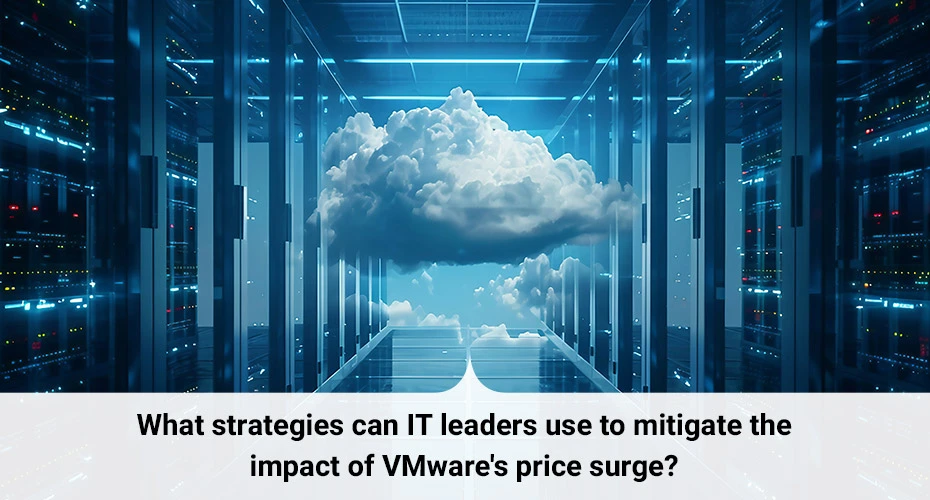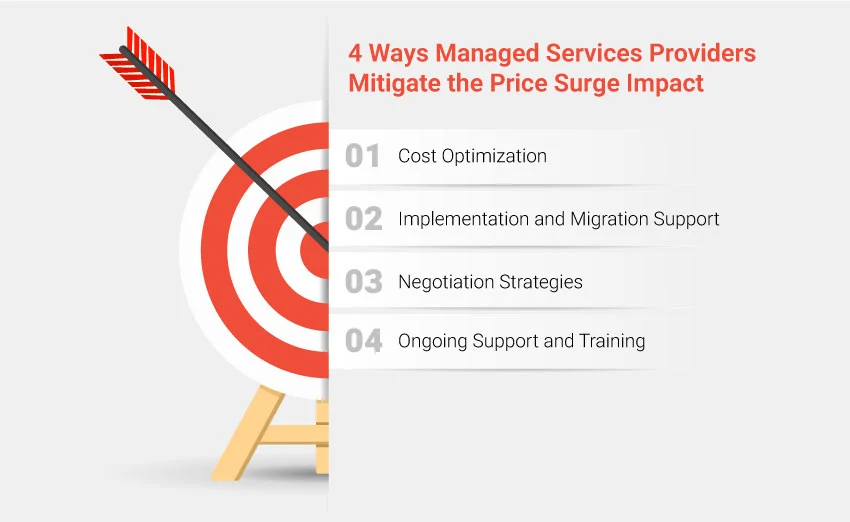

October 4, 2024 - by Synoptek
Broadcom’s acquisition of VMware for $61 billion marks a pivotal moment in the technology industry, particularly affecting organizations that rely on VMware’s virtualization and cloud solutions. This strategic move aims to enhance Broadcom’s foothold in enterprise software, leveraging VMware’s expertise in virtualization and cloud computing.

With a shift to a subscription-based model and significant price hikes, organizations are forced to reconsider their IT budgets, potentially accelerating migration to alternative platforms or prompting negotiations for more cost-effective solutions.
As the landscape shifts, adapting to these financial pressures is key for organizations striving to maintain seamless technology operations.
The Broadcom acquisition of VMware has significantly impacted IT strategies for organizations in terms of pricing and licensing changes and product and service continuity challenges, among others. Here are the key impact areas:
The shift to a core-based licensing model and the significant increase in annual support renewal costs have substantially raised the financial burden on organizations. For example, the yearly support renewal cost has jumped from $14,000 to $35,000, marking a 300% increase.
The new subscription model is 63% more expensive than the previous perpetual license model over a 7-year lifecycle. IT leaders must reevaluate their budgets and reallocate funds from other initiatives to cover the increased VMware costs.
The core-based licensing model, which requires a minimum of 16 cores per socket, reduces flexibility for organizations with varying hardware configurations. For example, a data center with 12 CPU sockets must license 192 cores, even if the actual usage is lower. This inflexibility limits the ability to optimize costs based on actual usage and may lead to over-provisioning of licenses.
The exclusive availability of VMware Cloud on AWS through Broadcom raises concerns about vendor lock-in and reduced customer choice. IT leaders may feel compelled to stick with VMware solutions due to the significant investments already made, even if alternative solutions become more attractive.
CIOs and CTOs are concerned about the potential impact on their existing infrastructure and cloud strategies, especially given Broadcom’s history of post-acquisition changes that have led to customer dissatisfaction.
Managed service providers (MSPs) can play a crucial role in helping businesses navigate the steep price increases associated with VMware’s new subscription model following Broadcom’s acquisition. Here are several ways MSPs can assist:

Major cloud providers like AWS, Amazon, and Google are offering robust VM hosting services. These services also benefit from scalability, automated backups, and high availability. With the ease of integration with existing systems and the availability of pay-as-you-go models, companies looking to move away from VMware are choosing cloud services tailored to unique needs and environments.
This is how organizations can effectively transition:
By proactively addressing these challenges and implementing strategic mitigation measures, IT leaders can navigate the impact of the Broadcom-VMware acquisition and ensure the continued success of their IT strategies.
If you want to avoid the anxiety caused by unexpected price hikes and changes in product offerings, you must partner with a competent managed service provider. A competent partner can provide tailored solutions such as public and private cloud hosting, managed on-premises private cloud services, and comprehensive Azure and AWS deployment management.